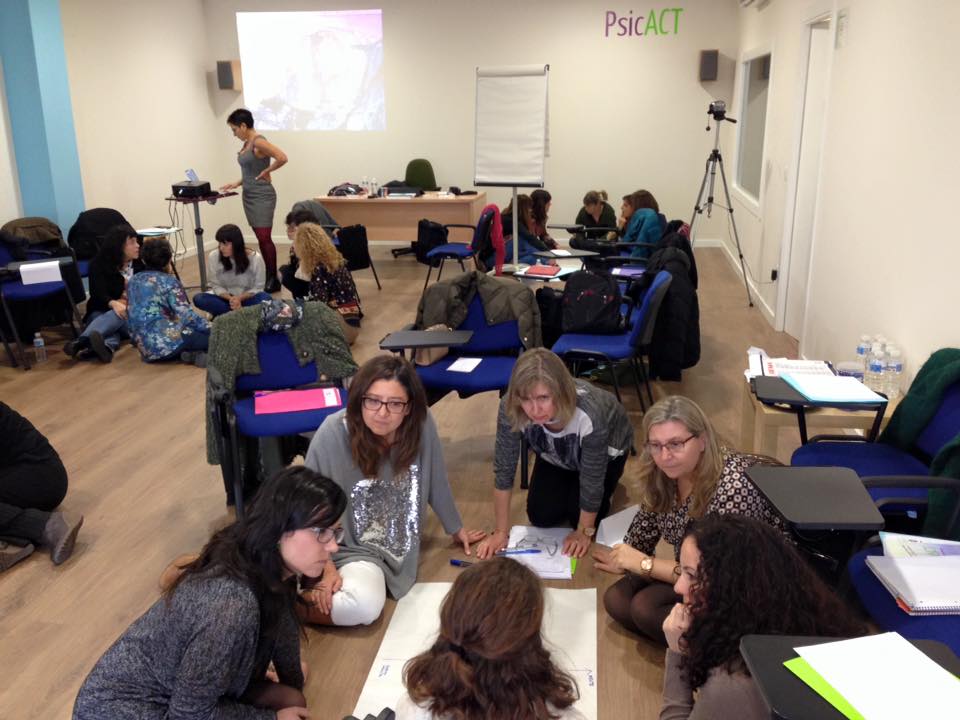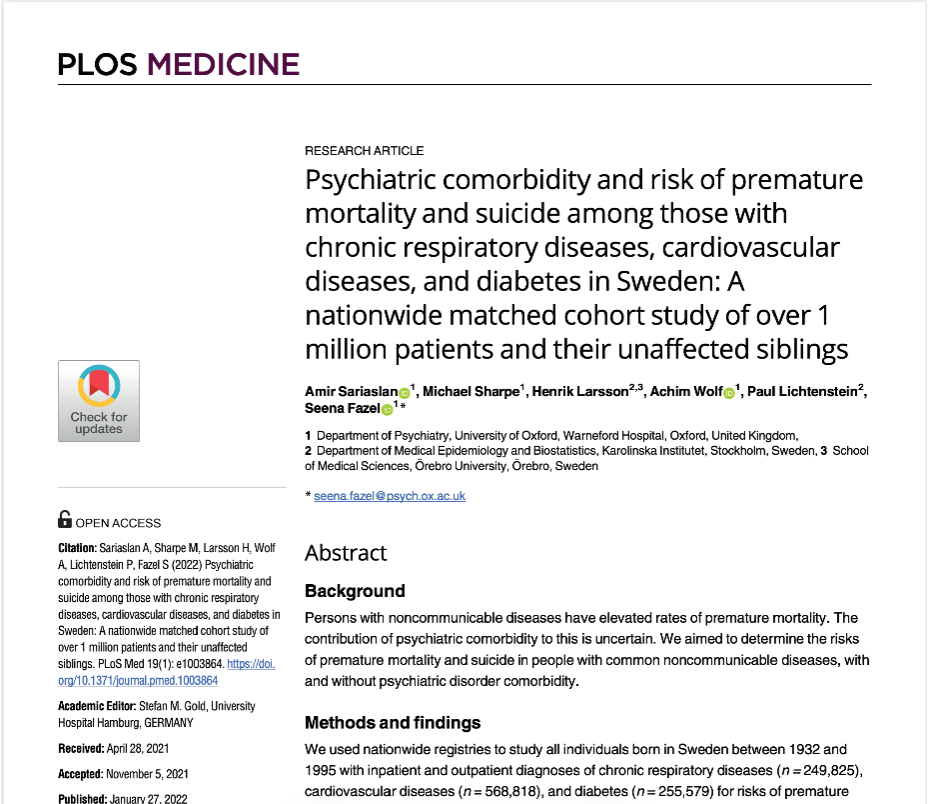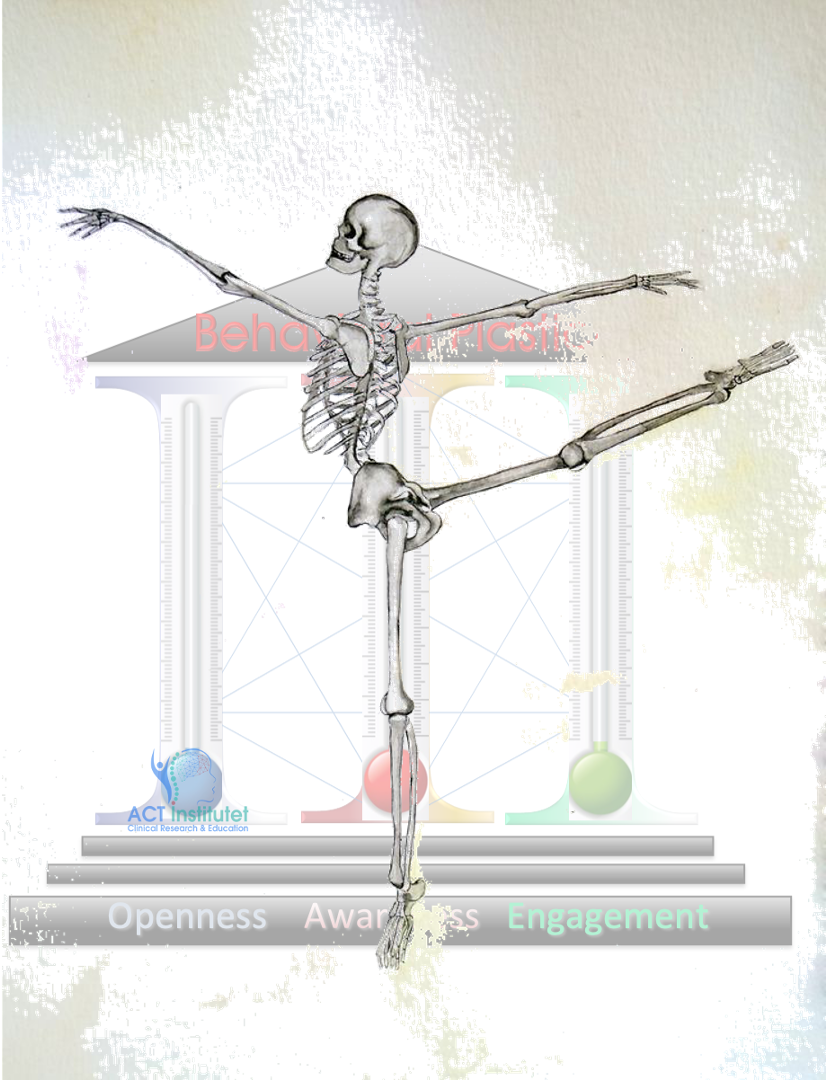Higher mortality and suicide amongst those with chronic conditions
“Screening and treatment for co-occurring substance use disorders and
depression in these conditions may improve life expectancy”
I this study, based on registries, the authors could compare mortality and suicide rates among patients and non-patients with diabetes, respiratory and cardiovascular conditions.
They could also compare patients and non-patients with and without any mental health issues and found that the rates are double so high amongst those suffering with mental health.
This means that we that work with individuals with non-communicable diseases in the so called ‘somatic ward’ should not only be aware of the co-existence of mental health issues, but also be able to talk about them, assess and intervene.
To think that ‘we physiotherapists are not psychologists or psychiatrist’ is just part of the problem. We can influence not only physical health, but also mental wellbeing as well as improve the patients capacity to function socially and participate in hers/his own and others’ life. Physical activity, cutting sedentary life, being in contact with their body and improving the capacity to be present, engaged and open to life will increase their vitality and meaning in life.
so what is the secret?
ACT is a psychotherapy build on evidence-based mechanisms of changes, or ‘therapeutical processes’. The Behavioral Plasticity framework is built on these same processes, but operationalize them with physiotherapeutic tools instead.
Assessing behavioral patterns
The Behavioral Plasticity Profiles delineate the way our patient relate to their situation and inform us about how to use the behavioral tools in our interventions.
Behavioral principles into physiotherapy
ACTivePhysio guide step by step the implementation of the behavioral principle into our practice.
Structured training and guidance
The Behavioral Plasticity guides us to emBODyACT principles in our profession.
Psychologically informed physiotherapy or
“Process-based behavioral physiotherapy“?
The integration of psychological aspects into our profession is sometimes called “psychologically informed physiotherapy practice.” This term can be problematic and may create misunderstandings.
Physiotherapy is indeed about changing behaviors, especially important (and more difficult) when working with individuals suffering from long-lasting or chronic conditions. Understanding the processes of changes requires a deeper understanding of behavioral mechanisms that prompt and ensure sustainable changes.
The process of changes relays on the empirically developed theory of Functional contextualism and the Contextual Behavioral sciences. Then psychologists and psychotherapists operationalize the process with their verbal and psychotherapeutic toolbox.
Physiotherapy has all the opportunities to systematize and reorganize interventions in line with this science and offer impactful, effective, and long-lasting behavioral changes. The secret is to know how to prompt these same processes with physiotherapeutic tools instead of verbal or psychotherapeutic ones.






